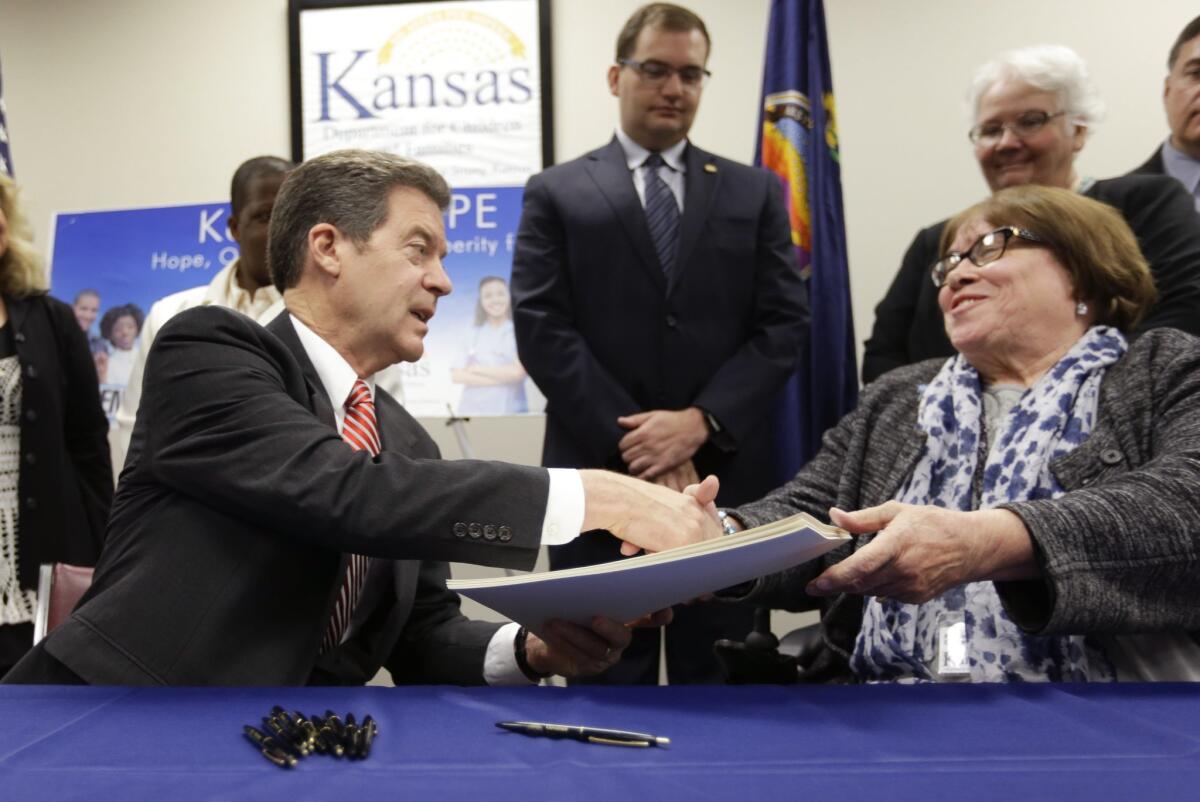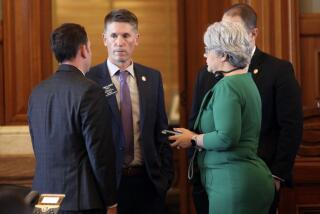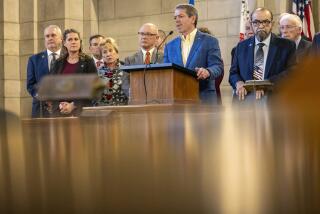New Kansas law bars welfare spending on alcohol, lingerie, tattoos

Gov. Sam Brownback, left, shakes hands with Phyllis Gilmore of the Department for Children and Families after signing a welfare-reform bill into law Thursday. The law restricts what welfare recipients can use their government funds for, including alcohol and tattoos.
- Share via
A new Kansas law prevents welfare recipients from using their government funds to buy a long list of items and services, including concert tickets, tattoos, psychic visits and lingerie.
As the measure worked its way through the Legislature, state officials defended the extensive list of prohibited purchases as part of its plan to help move welfare recipients away from government benefits to jobs. When Gov. Sam Brownback signed the bill on Thursday, he said “people want to be self-reliant,” according to local media.
More than 20 states have limited welfare spending, but the Kansas list is larger than the others, even though a typical family of three has to get by on around $400 a month, according to opponents of the list, who said it casts the poor in a negative light.
Among the more than a dozen banned categories are: alcohol; cigarettes; lottery and movie tickets; admission to swimming pools, cruise ships and theme parks; animal racing tracks; and sexually oriented businesses or retail establishments.
The state’s action is about more than a list, Shannon Cotsoradis, president and CEO of the advocacy group Kansas Action for Children, told the Los Angeles Times.
“The list has attracted attention because it feels mean-spirited and says something about how some people feel about the poor,” she said, adding that the law is not going to change a welfare recipient’s life much.
“This is not going to have much of an impact,” she said. “Things like cruise ships, lingerie, nail salons that have captured the headlines are things that people are not buying because they need the money for basic needs like food and rent.”
Cotsoradis estimated that a family of three in a rural area receives less than $400 a month while the same family living in a metropolitan area receives just over $400 a month.
“Not going on cruises won’t be much of a problem,” she said. “There hasn’t been any evidence to suggest there was a problem to begin with. There are a lot of misconceptions about what the poor look like today. They are not using money on cruise ships.”
Welfare reform has been a national issue for decades despite cuts in eligibility and benefits. It is jointly funded by local and federal governments and usually involves the electronic transfer of benefits to a card that can be used like an ordinary credit card for most purchases.
A 2012 federal law requires states to prevent the use of electronic benefit cards at liquor stores, gambling establishments or adult-entertainment businesses. More than 20 states have already prohibited the use of welfare funds for those purposes.
The Kansas law also limits the amount of money that can be withdrawn using an electronic benefit card to $25 a day. Currently there is no limit.
Much of the new Kansas law codifies administrative actions Brownback has already taken. They include a requirement that welfare recipients work at least 20 hours a week, be looking for work or enroll in job training.
The new law also decreases the lifetime cap on cash assistance to 36 months from 48 months.
Follow @latimesmuskal on Twitter for national news.
More to Read
Sign up for Essential California
The most important California stories and recommendations in your inbox every morning.
You may occasionally receive promotional content from the Los Angeles Times.











